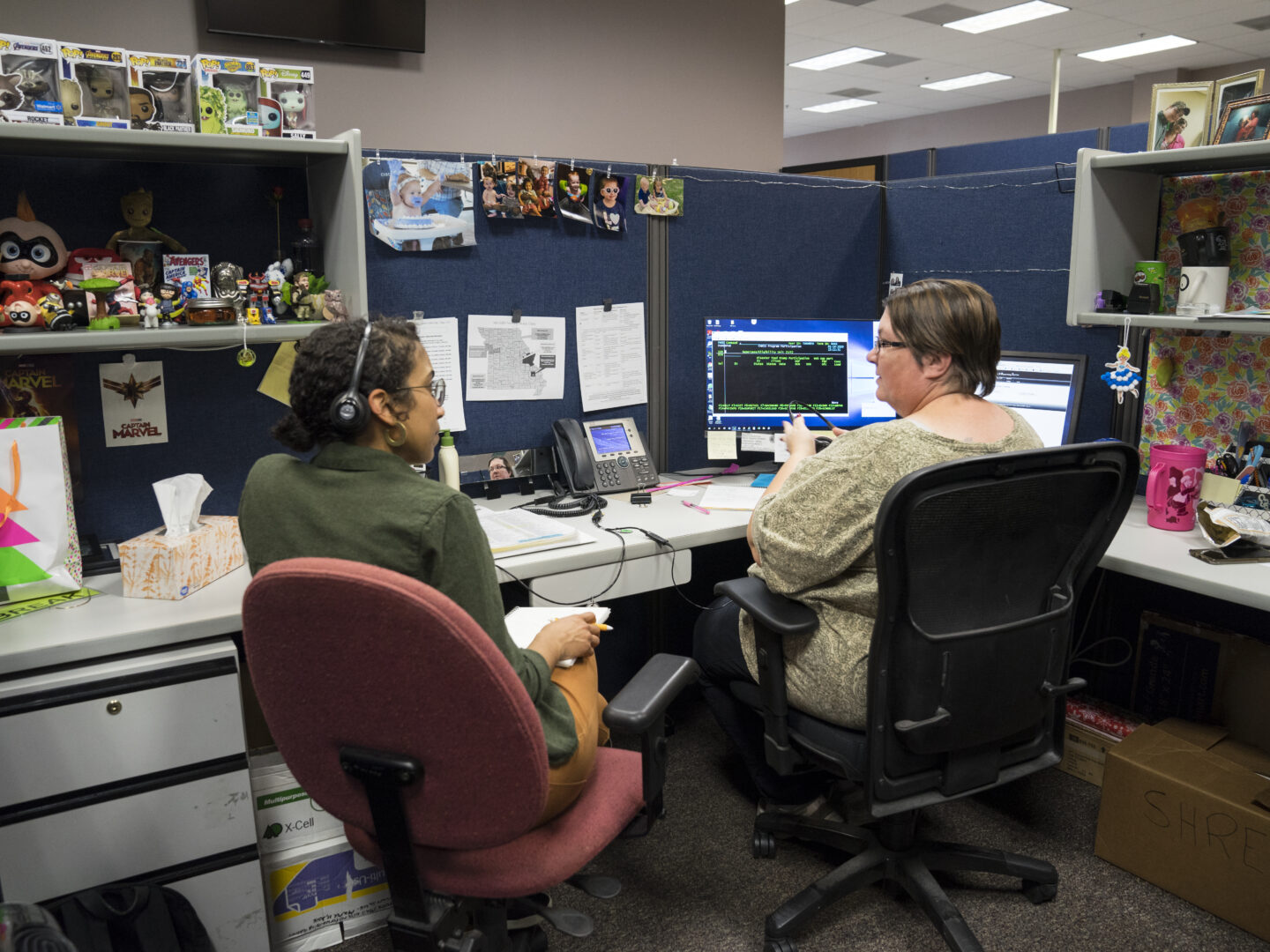Equity in design
building a better future, together

Public institutions should be a force for good. But for too long, they have helped shape—and been shaped by—the systemic oppression and discrimination embedded in the United States. In short: inequity has been perpetuated by design. But we believe equity can be too.
sources of institutional inequity
At Civilla, we practice human-centered design, a process that embraces complexity, goes beyond surface-level fixes, and seeks to create solutions that contribute to a better future. So to redesign inequitable public services, we first ask: how did we get here? Here’s what we know.
Systemic and systematic oppression: The roots of inequity in today’s America run deep. At their origins are discriminatory policies and practices—carried out by public institutions—that have stolen rights, opportunities, and wealth from historically marginalized communities for generations. Despite living in a democratic society, embedded power structures have prevented people from holding our institutions accountable.
Explicit and implicit biases: We all hold prejudices, shaped by stereotypes and cultural narratives, which may run counter to our stated beliefs. These biases often lead to judgments of people who’ve been historically marginalized—like women, people who identify as Black, Brown, Indigenous, and People of Color, ethnic or religious minorities, immigrants, people in poverty, and the LGBTQ+ community. Left unchecked, bias has woven itself into the fabric of institutional practices, policies, and culture.
Social determinants of health: Economic and social conditions have a huge influence on the health of communities. In the United States, we see this play out in consistently higher rates of chronic disease and lower life expectancies among marginalized groups—who often seek public services for support as a result. But the distinct needs of these communities are often ignored in the design of public services.
Administrative burdens: Mountains of paperwork and arduous processes are the norm for many people trying to access services. But they’re more than just inconvenient—they’re obstacles getting between residents and critical services that are meant to support them. These burdens have a greater impact on people who are already disadvantaged, reinforcing the inequities that public-serving institutions aim to fight.
in pursuit of institutional change
Civilla works with institutional leaders to question longstanding patterns of thought and confront sources of inequity directly. We do this by centering the following tenets.
Historical context: We approach human-centered design by first learning the history and context of the system we’re working on. With this understanding, we help leaders make decisions that produce more equitable outcomes and just systems.
People first: We design with people directly impacted by public-serving institutions. We work alongside people across demographic and geographic boundaries, and seek their insights at every step of the process. By prioritizing the needs of the people using the systems in question, rather than focusing only on institutions, our work roots out unnecessary burdens.
Rooted in community: We invest in deep relationships with the people and organizations impacted by our work, keeping them engaged and informed throughout a project’s lifespan. Their perspectives are at the foundation of Civilla’s research, solutions, and stories.
Informed research practices: We’re always working to build a more empathetic and equitable research practice. We interview people in their homes and in community spaces where they feel comfortable. We ask open-ended, non-leading questions to ensure we hear their perspectives and not our own. We ensure their expertise and insights guide every design decision. We honor and carry forward their stories, while protecting their privacy. And we aim to improve and strengthen our research practice for as long as we do this work.
from the inside out
Equity in design starts with our own team. We know the only true way to lead change is from the inside out, so we take the behaviors and culture of our team seriously. We look forward to seeing this practice grow across the design world.
Diversity as a strength: It’s essential for a human-centered design team to represent diverse viewpoints and a range of lived experiences. Our individual differences—spanning gender, age, race, sexual orientation, religion, political beliefs, and more—make us strong. We are committed to building a team that reflects the diversity of the people and communities we serve.
Belonging at our core: Our team collectively chose belonging as one of our 12 cultural principles, and we do our best to live and work by it every day. We celebrate each other’s unique identities and are committed to building an organization that’s welcoming to all. We prioritize empathy, respect, and self-awareness. We come together weekly as a team to reflect on how we are (or aren’t) upholding this principle.
Shared ownership: Diversity, equity, and inclusion work isn’t delegated to one individual or outsourced to a third party—everyone at Civilla plays a role. We have shared goals for this work, and take on shared projects that move us closer to them. Each month, we set aside dedicated times to focus solely on these aims.
A diverse design community: Given Civilla’s location in a majority-Black city and the longstanding underrepresentation of Black leaders in the design industry, we are committed to supporting Black designers. We are proud to sponsor events and initiatives such as Advocate, Educate, Innovate, Black Designers Ignite, and State of Black Design, and are always exploring new opportunities to support the Black design community.
our ongoing commitment
Civilla’s work towards equity in design will never be done. We’ll continue to push forward, ask hard questions of ourselves and others, and seek new ways to learn and grow. We’ll keep building a culture of belonging within our own team. And we’ll never stop championing equitable and inclusive solutions with the institutions we work alongside. We’re in this for the long haul, and we hope you’ll join us.